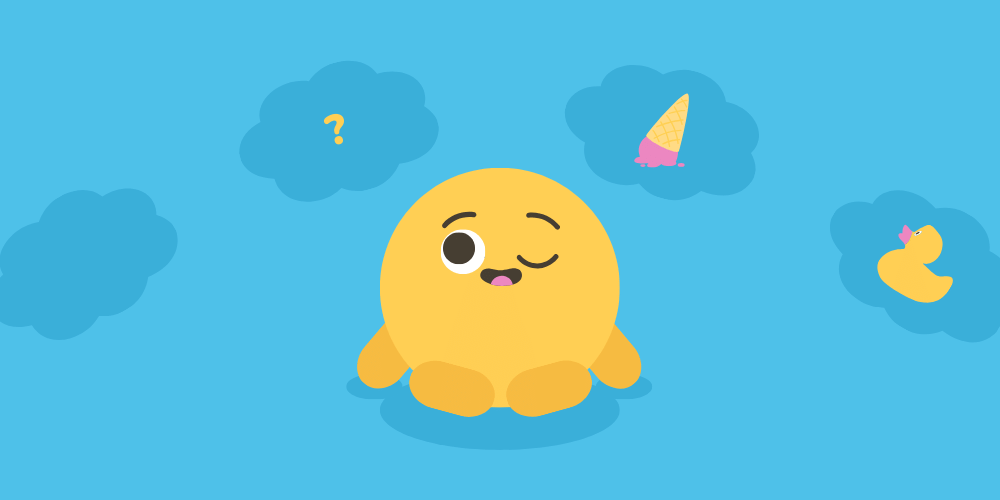
Humans have achieved extraordinary things yet have never managed to escape our emotions. Emotions influence how we perceive the world and, thus, make our lives a unique experience—for better or worse. They arise in our awareness as thoughts and feelings and can either turn into remarkable ideas and actions or turn us into mere puppets.
While our emotions usually relate to our lives, not all can be understood. Some are pleasurable, and some are painful. As a result, we chase pleasure and run away from pain. However, our tendency to suppress our painful emotions leads to further suffering. Surprisingly, the cause of our suffering is not the pain but our judgment of emotions as good or bad.
Face reality as it is, not as it was or as you wish it to be.

Following Jack Welch's advice, facing reality is not giving up—quite the opposite. Facing our emotions is a brave act, an active response to bring about a change. Instead of judging our emotions, we can watch them and label them for what they are—temporary and manageable. Mental noting is a playful meditation technique that helps us become less judgmental of our thoughts and feelings and allows them to flow freely.
Mental noting helps you notice your emotions and accept them as they are.
When we learn to accept emotions as they come, they will lose power over us. We will become their curious friends and welcome our emotions as if we had chosen them. Eventually, we will experience more joy even in the most ordinary situations.
Benefits
The benefits of mindful meditation, such as mental noting, have been demonstrated for decades. There are many reasons for you to choose mindfulness:
- Reduced stress
- Improved focus
- Improved emotional well-being
- Improved physical health
- Increased self-awareness
- Improved relationships
- Enhanced creativity
- Improved memory
- Increased resilience
Action steps
Mental noting builds upon a technique you have already learned, Breath Focus. However, in Mental noting, when you are distracted, you label the source of distraction as a thought or feeling before returning to the breath. Here are the instructions:
- Assume a posture that allows you to breathe easily. You can be sitting, walking, lying (as long as you are not sleepy), or standing while waiting for someone. Please do not perform this exercise while driving. Cultivate a well-disposed curiosity, and do not expect anything particular to happen.
- Allow your attention to settle on your breath. Where do you feel it? Do you feel the air as it enters or leaves your nostrils? Do you feel your belly rising and falling? If you do not feel anything, that is okay too. Do not try to control or judge your breath in any way; your breath will find its way.
- Wait until you realize that you got distracted. The moment you notice that your mind has wandered is when you become present again. Gently tell yourself what has distracted you, for example, a thought or feeling. Better yet, be more specific. For instance, identify the feeling (sadness, anger, or fear). The key is to label the emotion without passing any judgment. Instead of saying, "Sadness is bad, and I should not feel it," tell yourself, "This is sadness." Where do you feel it in your body if it is a feeling? Then, return to your breath, and wait for the next emotion.
An excellent opportunity to practice mental noting is when you feel a painful emotion taking over. If that seems impossible, you can reflect on your emotional state later. With regular practice, you can free yourself from strings of emotions that could cause you to act in undesirable ways.
Now, try to focus on your next three breaths before you continue. What will your next emotion be?

How did the exercise go? Did you have uncomfortable thoughts or feelings?
Practical tips
Here are practical tips (some of which you will remember from the Breath Focus lesson):
- There is no such thing as bad meditation.
- Judging the meditation misses its purpose.
- Do not think about meditation—meditate.
- Do not expect anything particular to happen.
- Keep a beginner's mind—every breath is new.
- Even two minutes a day can have a significant impact.
- The objective is to return to your focus, not to maintain it.
- Meditation is a practice of a thousand beginnings.
- All emotions are acceptable and a part of being human.
- A happy life is not a constant high.
- Pain is inevitable, but suffering is avoidable.
You are not alone
Tens of millions of people are experiencing the same emotion at this very moment. Emotions are a shared human condition. Sometimes we are happy, sometimes we are sad, but it is always us.

What is most personal is most general.
— Carl Rogers
Now or never
For the next two weeks, practice mental noting for at least five minutes a day. Create a daily reminder.


